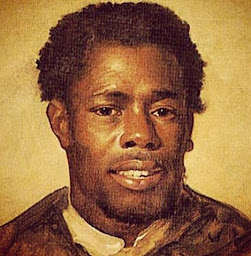William Lloyd Garrison
William Lloyd Garrison was born December 10, 1805, in Newburyport, Massachusetts. He was the son of a merchant sailing master. Due to the Embargo Act, which Congress had passed in 1807, the Garrisons' family fell on hard times while William was still young. Garrison began as an anti-slavery advocate and was strongly against native American removal. He joined the abolition movement when he was 25.
After finishing his apprenticeship at The Newburyport Herald, he borrowed money from a former employee and started up the Newburyport Essex Courant. He changed the name to the Newburyport Free Press. He used it as a political instrument to express the sentiments of the old Federalist party. Unfortunately, the Newburyport Free Press lacked similar staying power. Within six months, the Free Press went under due to subscribers' objections to its staunch Federalist viewpoints. When the Free Press folded in 1828, Garrison moved to Boston, where he worked as an editor for the National Philanthropist. In 1828, while working for the National Philanthropist, Garrison took a meeting with Benjamin Lundy. The antislavery editor of the Genius of Emancipation brought the cause of abolition to the Garrisons' attention. Lundy offered Garrison an editor's position in Vermont, and Garrison eagerly accepted. Garrison joined the American Colonization Society. Garrison thought that society's goal was to promote blacks freedom and well-being. But Garrison grew disillusioned when he soon realized that their true objective was to minimize the amount of free slaves in the United States. In 1830 Garrison broke away from the American colonization society and started his own paper, calling it the Liberator.
William Lloyd Garrison was a radical abolitionist, which meant he wanted to abolish slavery immediately. He dedicated his whole career to the abolishment of slavery. It took him 34 years of writing and editing his newspaper, "The Liberator," to eventually get slavery abolished through the 13th Amendment of the Constitution. Garrison used non-violent ways to get his ideas across. He used the slogan "No union with slaveholders" He created his own newspaper called "The Liberator." He also had speeches and created the Antislavery Society.
The first edition of The Liberator was published in 1831 and clearly stated Garrisons' position on slavery. The paper was published weekly with the motto, "Our Country is the world-our countrymen are mankind." Many slaveholders hated the newspaper because of its great influence on the people. Garrison never failed to publish an issue. There were 1,820 issues of The Liberator over 35 years, until slaves were finally freed in America.
He had very few supporters at first. Considering most of his supporters were black, he was highly ridiculed. But as time progressed and more information was revealed about the conditions of slaves to the northern public, he gained much more support for his cause. His writing and protesting did not make any major changes or national decisions, but as a whole, he changed a lot of people's minds about why we shouldn't have slavery. Through his published documents, he showed how it was wrong and unjust in many ways. In the end, slavery was made illegal so what he was doing was for the right cause at the right time.
Garrison formed The New England Antislavery Society in 1831. It was based in Boston with The Liberator as its official publication. Members believed that slavery was non-christian and needed to be abolished. They went throughout Boston to advocate their beliefs and get more people to join their cause.
Personally speaking, William Lloyd Garrison played a role in paving the way for the freedom of slaves. Even when he didn't have much support and received lots of backlash, he still stuck to his beliefs no matter what someone else would say about him. He represented the freedom of the press and speech.
Citations
Website: William Lloyd Garrison - The Liberator, Abolitionist & Life - Biography January 13th 2021 Author: Biography editors
Website: William Lloyd Garrison (pbs.org) 2020 Author: PBS editors
Website: William Lloyd Garrison | Encyclopedia.com March 12, 2020
Website: William Lloyd Garrison | HISTORY October 27th 2009






Comments
Post a Comment